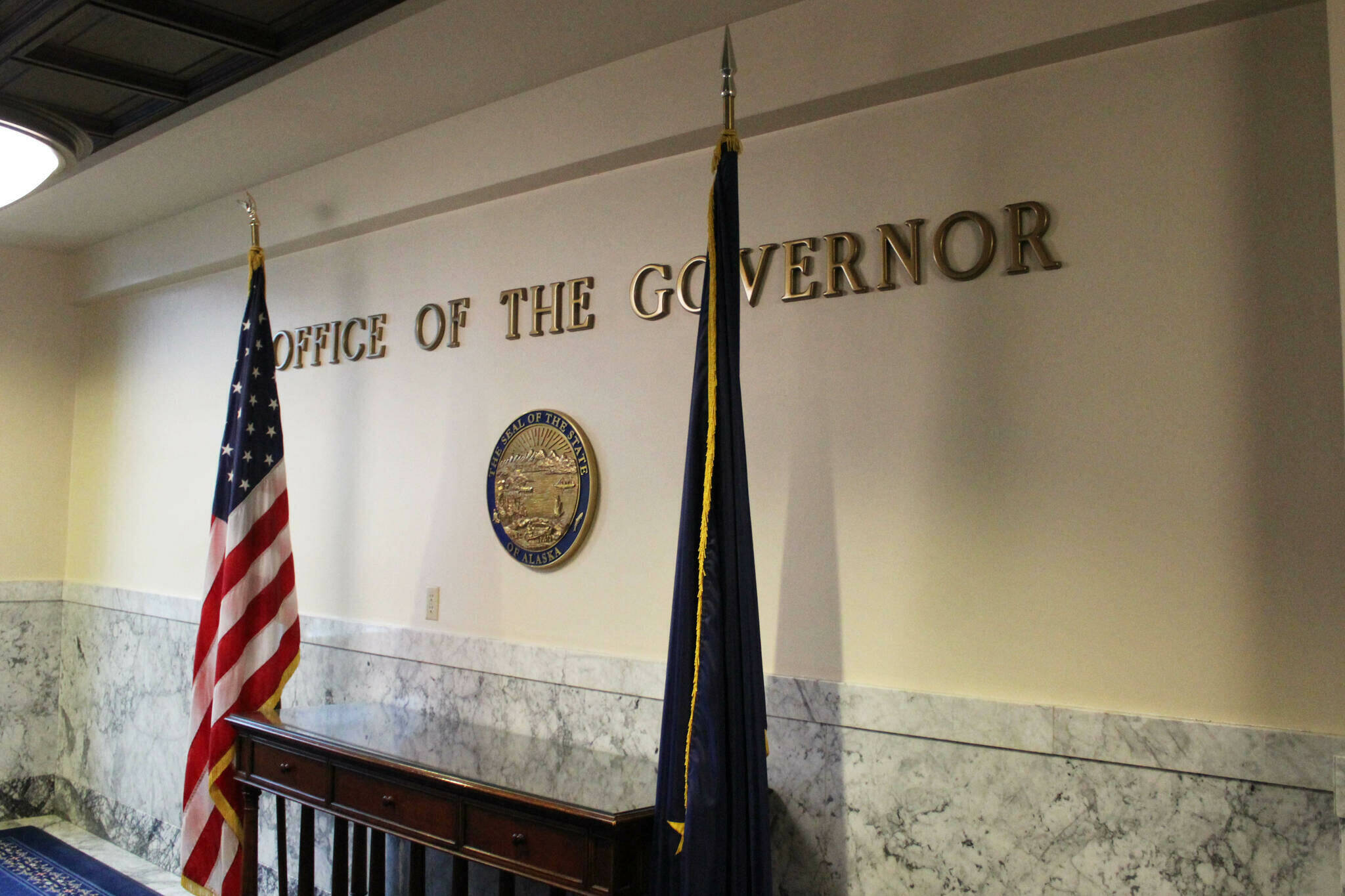This is a developing story.
Gov. Mike Dunleavy on Thursday vetoed a comprehensive, bipartisan education bill that included a $680-per-student increase for public schools, stating legislators have failed to act on educational policy priorities he’s seeking, with legislative leaders stating a veto override session is expected Monday.
The Legislature passed the final version of Senate Bill 140 by a combined vote of 56-3 following intense negotiations, but some legislators and other officials have stated they are unsure there are the 40 votes necessary for a veto override. Also, even if an override occurs Dunleavy can use a line-item veto on some or all of the increased funding to the current $5,960 Base Student Allocation when he signs the budget in June.
“Although I support an increase to the BSA – there were no new approaches, other than enhanced funding, to increase educational outcomes,” Dunleavy said in a prepared statement. “SB 140 lacked sufficient changes in how charter schools are chartered in order to allow more students and families charter school possibilities. The lack of such reforms, given our success, with charter schools did not justify the passage of this bill that increases spending without needed reforms.”
The increase would have provided an estimated $5.2 million in extra funding for the Juneau School District. The Juneau Board of Education on Thursday night approved a budget for next year that patches a $9.7 million deficit during a meeting that adjourned moments before the governor’s veto decision was announced publicly.
About half of the shortfall is covered by consolidating schools, while the rest is occurring through staff reductions and other cost-cutting, much of which district officials said could be negated with the increased BSA funding.
Superintendent Frank Hauser, in an interview immediately after the meeting, said he’s disappointed by the veto, but emphasized district administrators and school board members adopted the budget on the assumption there will be no increase in BSA funding.
“So we’re going to continue to move forward in the hope that a BSA (increase) does come through,” he said.
The veto occurred hours before a midnight deadline, after the House passed the bill by a 38-2 vote and the Senate by an 18-1 vote, transmitting it the governor on Feb. 26. Dunleavy had 15 days to sign, veto or allow the bill to become law without his signature, and on Feb. 27 he threatened to veto the bill unless legislation addressing his priorities was also sent to him.
However, the Republican-led House majority scheduled few meetings of its Education Committee during the 15-day period, and legislative leaders in both the House and Senate said during the interim described the status of discussions with the governor as ongoing.
Dunleavy said “there is still time in this session to address some of the issues” in the bill and on his priority list. However, he also noted that while he will continue to work with legislators on education reforms “I will review the appropriations bills following the legislative session to ensure schools are being adequately funded and the state’s limited resources are being spent appropriately.”
Among his stated priorities are allowing a state board to approve new charter schools — a power that currently exists with local districts — and year-end teacher retention bonuses.
SB 140 originated last year merely as a proposal to help rural school districts boost their broadband speeds, passing the Senate unanimously on May 12. But the extra BSA funding and other provisions were tacked onto the bill by the House Finance Committee near the end of last year’s session while lawmakers were attempting to reach a deal on the budget. The bill expanded even further in the House at the beginning of this year’s session as provisions ranging from homeschooling support to services for hearing-impaired students were added to provide a package that ultimately got near-unanimous support.
Both Senate President Gary Stevens, a Kodiak Republican, and House Speaker Cathy Tilton, a Wasilla Republican, have confirmed the Legislature’s plan is to hold a joint session to consider a veto override on Monday. A vote in favor by two-thirds of Alaska’s combined 60 lawmakers is required for a successful veto override.
However, Rep. Ben Carpenter, a Nikiski Republican who voted for SB 140, stated Thursday night he will support Dunleavy’s veto and work on replacement legislation.
“I’ve been advocating for parents to have a greater say over their children’s classroom,” Carpenter stated in a text message. “Why did the education unions have those provisions stripped out of S.B. 140? Very shortsighted. What’s good for parents is good for kids.”
Several other Republican legislators who voted in favor of the bill declined to say in media interviews Thursday if they will vote to override the veto.
However, House Minority Leader Calvin Schrage, an Anchorage independent, said the 16 members of his caucus “stand ready to override this veto and ensure SB140 becomes law.”
“Throughout this session, Alaskans have made clear that the Legislature must address the funding crisis facing our students, educators, and schools across Alaska,” he said in a prepared statement. “Alaska’s education system is in crisis and SB140 provides essential support to Alaska’s students whether they attend charter, correspondence, or neighborhood brick and mortar schools while directing funds into the classroom and funding the Alaska Reads Act.”
If the governor uses a line-item veto in the budget to reject an increase in BSA or other funding it will take a three-fourths majority of the Legislature to override.
• Contact Mark Sabbatini at mark.sabbatini@juneauempire.com or (907) 957-2306. Ashlyn O’Hara of the Peninsula Clarion contributed to this story.

